—-
This post is a guest post from Daniel F. who as you know is his fourth year. Like my posts that I’ve done for previous years, outlining study materials, this is a broad overview of each rotation and his recommended books for each shelf exam. I will be doing my own rotation-specific posts as the year goes on detailing what I used, but for now good luck and enjoy! – Ryan
—–
Welcome to third year. By now you’ve probably figured out how much better it is than first and second year. That’s good. Take advantage of every opportunity that is presented to you. Enjoy every patient (as much as possible). Every day should teach you something new. A few days aside, third year was a great experience. My single greatest regret is that I wish I had learned more each day so that I didn’t have to cram so much for Step 2. That brings me to the bulk of this post—what books to buy and how to study.
Question Banks
First, some overall tips. I made the mistake of buying UWorld 3 months before Step 2 to save money. I figured I had the Kaplan qbank (now Combank/USMLE weapon for y’all) to use throughout the year, but that was dumb. I should have just spent the money and bought UWorld. Why? Because it is the best. Bar none. Also, I hardly ever used the Kaplan qbank during 3rd year. So if you have the discipline and you plan on taking the USMLE, then go ahead and buy UWorld (+ the self-assessment—there are very few assessments out there for step 2). Even if you plan on taking COMLEX only, I would consider still buying UWorld. It’s just that good. Use the questions to prepare for shelf exams and then reset your account when you start to study for Step 2. For every shelf you should do some UWorld/Combank practice questions. It is an easy way to review the material before the exam. However, the bulk of UWorld is geared towards internal medicine (also the bulk of Step 2), so don’t burn yourself out trying to do all 1300 internal questions before your IM shelf. What if you want to save UWorld for your vacation/cram session next summer? That’s more or less what I did but I wish had focused more on reviewing UWorld questions instead of getting bogged down with DIT/first aid/etc.
Board Review Overview
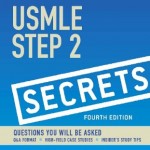 The next big tip: buy USMLE Step 2 Secrets. It is a great book to have with you on every rotation. A lot of the “secrets” seem really inane and stupid at first. I think the book says “smoking is bad” about 20 times, but keep reading. There is a lot of good stuff in there. Next you need a general review book(s). I used First Aid for Step 2. Make sure it is CK, not CS—that’s for the Level 2 PE in Conshohocken, PA. FA for Step 2 CK is not the best book, but then again, there is not a single Step 2 review book that dominates the market like First Aid does for Step 1. I would recommend using a combination of two review books and use them throughout the year so you are familiar with their contents before Step 2 studying rolls around. If you plan to use Doctors in Training, buy Step Up to Step 2 (Brian Jennings and Beardo, aka Dr. Lewis, are the new co-authors of Step up for step 2). If you like the Secrets book and want a bigger version of it, buy Crush Step 2 (same authors, just more content). Master the Boards is also good (Kaplan’s review book series by Dr. Conrad Fischer, so particularly useful if you want to do the Kaplan course). The library has versions of each of these books, so check them out and see which ones work best for you.
The next big tip: buy USMLE Step 2 Secrets. It is a great book to have with you on every rotation. A lot of the “secrets” seem really inane and stupid at first. I think the book says “smoking is bad” about 20 times, but keep reading. There is a lot of good stuff in there. Next you need a general review book(s). I used First Aid for Step 2. Make sure it is CK, not CS—that’s for the Level 2 PE in Conshohocken, PA. FA for Step 2 CK is not the best book, but then again, there is not a single Step 2 review book that dominates the market like First Aid does for Step 1. I would recommend using a combination of two review books and use them throughout the year so you are familiar with their contents before Step 2 studying rolls around. If you plan to use Doctors in Training, buy Step Up to Step 2 (Brian Jennings and Beardo, aka Dr. Lewis, are the new co-authors of Step up for step 2). If you like the Secrets book and want a bigger version of it, buy Crush Step 2 (same authors, just more content). Master the Boards is also good (Kaplan’s review book series by Dr. Conrad Fischer, so particularly useful if you want to do the Kaplan course). The library has versions of each of these books, so check them out and see which ones work best for you.
OMM / OPP / Manipulative Medicine
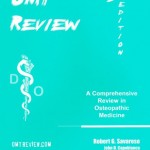 Now for rotation-specific books…let’s start off with the easiest. OMM – for the exam, just do some practice questions from Combank and use Savarese’s OMT Review. For the rotation itself, consider Dr. Mason’s 5 Minute Osteopathic Manipulative Medicine Consult. I hear great things about it but I have never used it personally (and I’m too cheap to buy it). It has quick tips and techniques for many common problems you will run across.
Now for rotation-specific books…let’s start off with the easiest. OMM – for the exam, just do some practice questions from Combank and use Savarese’s OMT Review. For the rotation itself, consider Dr. Mason’s 5 Minute Osteopathic Manipulative Medicine Consult. I hear great things about it but I have never used it personally (and I’m too cheap to buy it). It has quick tips and techniques for many common problems you will run across.
Family Medicine
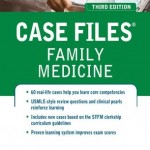 The Sloane textbook, Essentials of Family Medicine, is required and you will need it for the weekly quizzes. The quizzes are insanely hard with averages ranging from 55-80%. Don’t expect to ace them, even if you do the reading. I tried to read initially but gave up towards the end. It’s a good book, just very heavily academic and I did not see much change in my scores from when I studied to when I did not. 3-4 hours of reading to make a 60%? Not for me, but you should come to conclusion on your own. Also, the scores are curved. So what about the shelf? I think Case Files for Family Medicine and the AAFP questions are probably the best combination. You have to register for the AAFP (it’s free, follow the link and click “create one now!”) to get access to their questions but they have an insane number (roughly 1200) and it takes 2-3 days to register so plan ahead. Weirdly, UWorld and Combank do not have any family medicine practice questions but you can click on internal medicine and pediatrics and then do the “preventive medicine” subcategory to pull up all the screening and vaccine type questions.
The Sloane textbook, Essentials of Family Medicine, is required and you will need it for the weekly quizzes. The quizzes are insanely hard with averages ranging from 55-80%. Don’t expect to ace them, even if you do the reading. I tried to read initially but gave up towards the end. It’s a good book, just very heavily academic and I did not see much change in my scores from when I studied to when I did not. 3-4 hours of reading to make a 60%? Not for me, but you should come to conclusion on your own. Also, the scores are curved. So what about the shelf? I think Case Files for Family Medicine and the AAFP questions are probably the best combination. You have to register for the AAFP (it’s free, follow the link and click “create one now!”) to get access to their questions but they have an insane number (roughly 1200) and it takes 2-3 days to register so plan ahead. Weirdly, UWorld and Combank do not have any family medicine practice questions but you can click on internal medicine and pediatrics and then do the “preventive medicine” subcategory to pull up all the screening and vaccine type questions.
Psychiatry
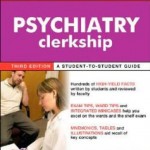 Psychiatry is another easy subject because the rotation provides you with all the books you need (First Aid for Psychiatry, Case Files for Psychiatry, and The Clinical Manual of Emergency Psychiatry that I never used). First Aid for Psychiatryh is really the only book you need, but Case Files is always a good book too if you like the case-based format. The only downside if that you need to return the books at the end of the rotation. If you really like psychiatry, then I also recommend picking up Blueprints for Psychiatry. As with the rest of this book series, Blueprints provides a nice overview of the material and they have 100 practice questions at the end of the book.
Psychiatry is another easy subject because the rotation provides you with all the books you need (First Aid for Psychiatry, Case Files for Psychiatry, and The Clinical Manual of Emergency Psychiatry that I never used). First Aid for Psychiatryh is really the only book you need, but Case Files is always a good book too if you like the case-based format. The only downside if that you need to return the books at the end of the rotation. If you really like psychiatry, then I also recommend picking up Blueprints for Psychiatry. As with the rest of this book series, Blueprints provides a nice overview of the material and they have 100 practice questions at the end of the book.
OB/Gyn
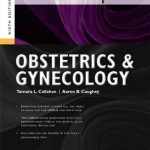 The most important resource was the OB study guide that I posted to facebook. That packet covers almost everything you need to know. First aid for step 2 also has some great stuff for OB-GYN. Blueprints Obstetrics & Gynecology is another good resource for this shelf exam. Case files for OB/Gyn as well. I have no strong opinions one way or the other. The PDF study guide was free and I could carry it easily in my white coat so I used that. UWorld has good questions. As far as the rotation goes, this will be one of your most interactive rotations. Probably a third of my class wants to do OB now just because of how good the rotation is. The hours are long, but you get to work with the team and you feel included. Because the residents care a lot, I think it’s only appropriate to return the favor. Offer to give a presentation about a relevant topic (you can do this on any rotation, but OB at JPS is a great one because they are so receptive and like to see med students learning). When you give a presentation on something go to the resident/attending-level textbooks as a resource. They will really appreciate and respect that. Lastly, when you’re on Labor and Delivery, offer to get them food. They can’t always leave the floor to get food from the cafeteria/McDonald’s, so help them out. And usually they will pay for your food as well. J
The most important resource was the OB study guide that I posted to facebook. That packet covers almost everything you need to know. First aid for step 2 also has some great stuff for OB-GYN. Blueprints Obstetrics & Gynecology is another good resource for this shelf exam. Case files for OB/Gyn as well. I have no strong opinions one way or the other. The PDF study guide was free and I could carry it easily in my white coat so I used that. UWorld has good questions. As far as the rotation goes, this will be one of your most interactive rotations. Probably a third of my class wants to do OB now just because of how good the rotation is. The hours are long, but you get to work with the team and you feel included. Because the residents care a lot, I think it’s only appropriate to return the favor. Offer to give a presentation about a relevant topic (you can do this on any rotation, but OB at JPS is a great one because they are so receptive and like to see med students learning). When you give a presentation on something go to the resident/attending-level textbooks as a resource. They will really appreciate and respect that. Lastly, when you’re on Labor and Delivery, offer to get them food. They can’t always leave the floor to get food from the cafeteria/McDonald’s, so help them out. And usually they will pay for your food as well. J
Surgery
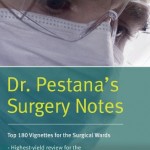 Pestana notes. Be sure to get ahold of the Kaplan notes by Pestana for a broad overview of surgical topics as well as the Pestana word document which has case vignettes. Email me if you need this stuff. Surgical Recall is a great book for “pimp” style questions that you might be asked. Strike that. You will be asked. That is, if your surgeon acknowledges you as a human being. I worked with six surgeons over my eight weeks of surgery. Three pimped a lot, one just made fun of me without pimping me. And two did not really acknowledge me at all. NMS surgery casebook is a very detailed but good book if you really want to study hard. Lastly, Schwartz’s Principles of Surgery is available free online through the library. You will need this for your blackboard case assignments.
Pestana notes. Be sure to get ahold of the Kaplan notes by Pestana for a broad overview of surgical topics as well as the Pestana word document which has case vignettes. Email me if you need this stuff. Surgical Recall is a great book for “pimp” style questions that you might be asked. Strike that. You will be asked. That is, if your surgeon acknowledges you as a human being. I worked with six surgeons over my eight weeks of surgery. Three pimped a lot, one just made fun of me without pimping me. And two did not really acknowledge me at all. NMS surgery casebook is a very detailed but good book if you really want to study hard. Lastly, Schwartz’s Principles of Surgery is available free online through the library. You will need this for your blackboard case assignments.
Internal Medicine
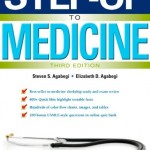 Step Up To Medicine. Not Step Up to Step to 2 (I hear a lot of people confuse the two). Step Up To Medicine! This book is phenomenal. Hopefully you used it during 2nd year, so you are somewhat familiar with it. But it is pretty dense and detailed. Pocket Medicine (was the red book, then the green book, now apparently the purple book, which is the most updated) is a must have for your white coat, but honestly, now that y’all have UpToDate on your phones, it’s probably just as good if not better to use that for quicker reference. UWorld is key for this rotation/shelf. But like I said earlier, there are over 1300 IM-related questions. Get through as many as you can during the rotation. The majority of Step 2 is focused on IM, so doing well on this rotation/shelf will help a lot for step 2. Set a goal to get through 50%, 75% or 100% depending on how committed you are to destroying the shelf and/or getting good evaluations. A word on evaluations – most preceptors are just going to circle all 4’s and 5’s and not write much. That’s fine. What really matters is securing good letters of recommendation because you will have little time to do this 4th year. How do you impress? Be efficient, demonstrate an eagerness to learn (look up articles about a disease, offer to write a case report, etc.), and be on time with a good attitude. Those are the most important things. Showing off knowledge can hurt you more than it helps you.
Step Up To Medicine. Not Step Up to Step to 2 (I hear a lot of people confuse the two). Step Up To Medicine! This book is phenomenal. Hopefully you used it during 2nd year, so you are somewhat familiar with it. But it is pretty dense and detailed. Pocket Medicine (was the red book, then the green book, now apparently the purple book, which is the most updated) is a must have for your white coat, but honestly, now that y’all have UpToDate on your phones, it’s probably just as good if not better to use that for quicker reference. UWorld is key for this rotation/shelf. But like I said earlier, there are over 1300 IM-related questions. Get through as many as you can during the rotation. The majority of Step 2 is focused on IM, so doing well on this rotation/shelf will help a lot for step 2. Set a goal to get through 50%, 75% or 100% depending on how committed you are to destroying the shelf and/or getting good evaluations. A word on evaluations – most preceptors are just going to circle all 4’s and 5’s and not write much. That’s fine. What really matters is securing good letters of recommendation because you will have little time to do this 4th year. How do you impress? Be efficient, demonstrate an eagerness to learn (look up articles about a disease, offer to write a case report, etc.), and be on time with a good attitude. Those are the most important things. Showing off knowledge can hurt you more than it helps you.
Pediatrics
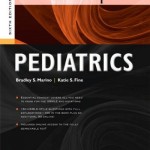 First Aid for Pediatrics is a great book but excessively detailed. Only buy this if you really really like pediatrics. Blueprints Pediatrics is more than sufficient, and at half the length, much more manageable to get through. Harriet Lane Handbook is another great pocket guide for your white coat but not worth your money unless you want to do peds. I found Pre-Test Pediatrics to be a good source for questions, but focus on UWorld first and foremost if you have it.
First Aid for Pediatrics is a great book but excessively detailed. Only buy this if you really really like pediatrics. Blueprints Pediatrics is more than sufficient, and at half the length, much more manageable to get through. Harriet Lane Handbook is another great pocket guide for your white coat but not worth your money unless you want to do peds. I found Pre-Test Pediatrics to be a good source for questions, but focus on UWorld first and foremost if you have it.
I hope this was informative. Please email if you have questions regarding 3rd year, books, or trouble acquiring any of these resources. Good luck in third year!
– Daniel F., MS4
